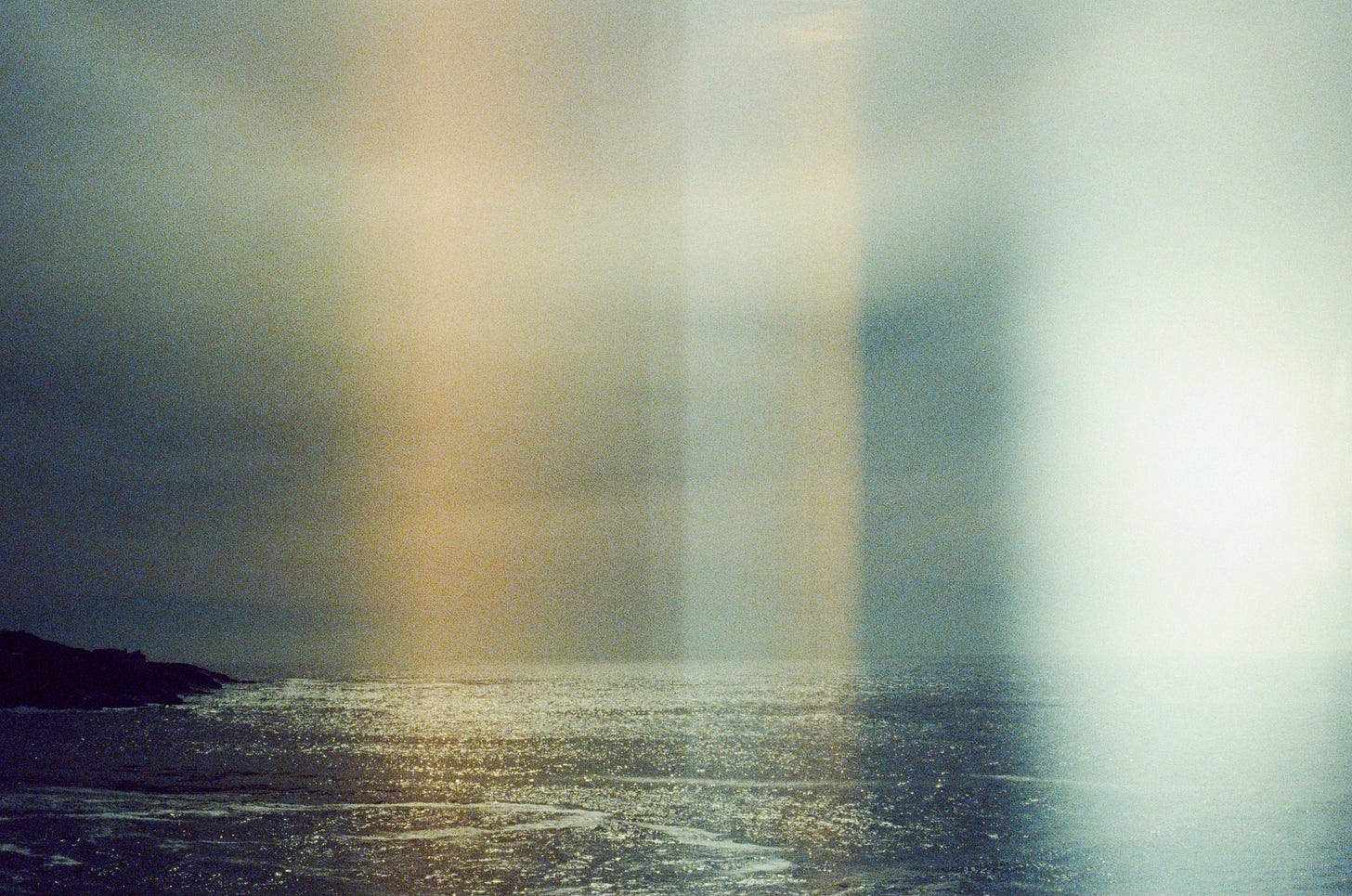For the Birds: On the importance of forgetting (a full moon missive)
How to become a great editor of your own work.
Thanks for being here. For the Birds is many things: a home for deep creative reflection, a gathering place for divergent thinkers, and a slowly-growing archive of writing that wants to last. Paid readers gain access to The Resiliency Circle and receive one thoughtful prompt, worksheet, or creative tool each month.
Before we begin—two quick announcements:
1) I have a new essay in the upcoming Someone Like Me anthology
This nonfiction collection features powerful essays by women and gender-diverse Autistic writers, all celebrating the wide, weird beauty of neurodivergent experience. I could not be more honored to have my essay, “Bones in the Ground,” included in this upcoming UK edition!
→ Pre-order your copy here.
2) …and I also have three new tiny poems in the latest issue of Spoon Knife 9: Numbers
From the website: “The ninth annual Spoon Knife anthology has been mathematically formulated to satisfy your craving for weird fiction, poetry, and memoir, featuring stories from 34 human writers.” And I’m one of them!
Spoon Knife is an Autonomous Press publication—you know, the publisher of Nick Walker’s seminal Neuroqueer Heresies. Walker serves as the managing editor of the press, and has a new piece included in this issue.
Yes, I am ridiculously, irrationally excited about these facts.
→ Order your copy of Spoon Knife 9: Numbers here.
On the importance of forgetting
Dear Birds,
There’s this major part of the creative process that sometimes gets undervalued or overlooked. Maybe because, in all honesty, it doesn’t look like much from the outside. Or maybe because it’s an experience we’re often scrambling away from when it shows up elsewhere in our lives.
It’s not the dream-flurry of writing when things are flowing easily from your pen. And it’s not the satisfying before-and-after of a draft that’s been revised into something brand new.
It’s the part where you step away entirely. Ruthlessly. Where, for a luxurious amount of time, you abdicate all responsibility for the made thing.
i.e., you forget about it for a while.
During the forgetting period, you do other things.
You let the work sit, simmer.
You work on a different project, maybe. Or leave your preferred medium altogether.
You live your life, off the page.
Listen to me, you sweet bird: This forgetting part is essential!
I think poets have known this for a long time—here’s William Wordsworth more than two hundred years ago:
“Poetry is the spontaneous overflow of powerful feelings: it takes its origin from emotion recollected in tranquility.”
So we need, first of all, the spontaneous overflow of experience and emotion and creation. Then we need the calmer, quieter space of tranquil recollection, where the crafting and the polishing get done. But do you know what comes between those two vital phases?
Dilly-dallying! Empty time & space. Meandering elsewhere. Thinking about other things. Working on other things.
This is the medicine of forgetfulness.
Especially when you’re working on something bigger—something that’ll require shaping, reshaping, and editing—this nothing period is vital. It isn’t about laziness (barf) or even procrastination. Rather, it’s the only way to come back to your work with fresh eyes.
No matter what the instagram ads tell you, there’s no hack for this! (They’re lying, I pinky-promise.) There’s no “secret method” that gets around the simple fact that time—real, lived time, and all the experiences we accumulate when we let it unfold broadly—is one of the most important ingredients in the editing process.
If you’ve got a sticky relationship with Time (or its drunk cousin, Urgency), this is the moment in the creative process when that inner noise can get kind of loud. It says things like…
You should be farther along! or
You’re gonna fall behind! or
If you were serious about your [book / newsletter / project], you’d be working on it right now!!
And I get it. I really do, because that raucous voice still lives in me, too. And because the first time I saw harmful messages about creative productivity—e.g. “How to write your book in 4 days!” and all the annoying, deceptive variations—my default programming was to assume I must be doing something wrong. Or even worse: not trying hard enough.
But. It’s not just that these messages are false or oversimplified (they are). It’s that they completely miss the joy and richness of the creative process itself.
They treat creativity like a business that needs efficiency at all costs.
They treat writing like a task to be conquered.
They pretend editing is mere polish, not a transformational portal.
And they definitely don’t leave space for forgetting—this radical notion that we can turn away from the writing sometimes. And that turning away not only won’t kill us, but may actually serve the work.
Good writing is slow.
Deep writing is slower.
Even when the ideas come in a rush, which they sometimes do, the larger shape of a creative project takes time to emerge. It benefits from spaciousness. And wandering. And a luxurious pace of thought.
And nowhere does this matter more than in the editing phase.
When you’re building something that’s going to require multiple iterations—a book, a longform essay, or some other larger body of work—the best gift you can give yourself is time.
Time to go away and come back.
Time to mull, integrate, and return with curiosity.
Time to forget, so you can see the work clearly once again.
This isn’t wasted time.
It’s creative time.
Invisible, maybe. But essential.
Note: A slightly modified version of today’s essay can be found on my blog.












"Time (or its drunk cousin, Urgency)"
Love this line!
And congratulations; your work is in the world!
This appeared at the right time for me, thanks for writing Sarah.